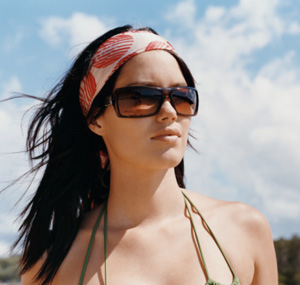More Than an Accessory: Sunglasses for Optimum Eye Health
They’re a staple for every celebrity who wants to go incognito. They add an air of “cool” to any ensemble — even if you’re just running out for coffee. And forget heading to the beach without a pair. Yes, life just wouldn’t be the same without our sunglasses.
But a pair of stylish shades isn’t just the finishing accessory to your outfit. In fact, sunglasses do more than simply keep the sun out of your eyes. They are an important tool in protecting eye health, and in order to gain the maximum protection benefits, it’s important to understand how to evaluate specs and what their labels mean. Whether you’re buying new sunglasses for yourself or deciding what to offer customers in your shop from a direct source for wholesale sunglasses, knowing what makes one pair of glasses better than another will help ensure that the glasses are healthy in addition to looking great.
You Need UV Protection
The sun’s ultraviolet (UV) rays are damaging to your skin, and they can be damaging to your eyes as well. There are several types of UV rays: UVA, which are the longest rays, can penetrate through glass; UVB rays cannot go through glass, but they do the most harm to the body’s cells. The sun also emits UVC rays, but they do not reach the Earth and therefore aren’t a concern.
Because UV rays are present even when the sun isn’t necessarily shining (even when there is cloud cover, the sun’s rays are penetrating the Earth) it’s important to protect yourself against their harmful effects. That means applying sunscreen and wearing sunglasses, especially when there is glare. Glare can be caused by water, sand, snow and glass; your car’s windshield is actually one of the largest producers of glare, which can have seriously detrimental effects on your eyes. UV rays can burn the delicate skin on your eyelids and can damage your corneas and lenses. Damage from UV rays also increases the chances that you’ll develop macular degeneration or cataracts in the future.
The easiest way to protect your eyes is by wearing appropriate eyewear, meaning sunglasses with adequate UV protection. When evaluating sunglasses for your customers, look for those that block 99 to 100 percent of both UVA and UVB rays. Sunglasses that are labeled as UV 400 or 400nm meet those criteria; the label simply means that they block 400 nanometers of UV light.
The price of sunglasses or the color of the lenses does not determine the level of UV protection. A cheap pair of sunglasses from the discount store can actually provide more protection than a high-end designer pair if its UV rating is higher. If a pair of sunglasses does not offer enough protection, pass on them in favor of a pair that will block the most harmful rays and help keep your eyes healthy.
Additional Considerations
While protecting your peepers against harmful UV light is a top concern, sunglasses often have other features that help protect your vision and even help you see better. Some of the more common features include:
– Mirror-coated lenses. Most often associated with law enforcement, mirror-coated lenses help the wearer feel more comfortable by blocking more light from reaching the eye. Mirrors don’t offer additional protection from UV rays, but they do help prevent squinting, watering or spotting caused by excessively bright light.
– Polarized lenses. Like mirror finishes, polarized lenses do not protect against UV light. However, they do reduce the amount of reflected glare, making them ideal for skiers or boaters who might have their vision compromised by light reflection from snow or water.
– Blue blockers. Blocking blue light can help you see things more clearly, making these glasses popular among sportsmen. While amber lenses are most common, they can cause problems with recognizing colors while driving, so if you plan to wear blue blockers while driving, choose gray-tinted lenses.
The good news is that many sunglass designers and manufacturers offer glasses that meet both the demands of a fashion-conscious consumer and the need to provide adequate sun protection. In fact, there’s no reason that every pair of sunglasses in your shop can’t meet the minimum UV protection requirement, given the wide array of styles available at every price point. By only offering glasses that offer exceptional eye protection, you’re providing your customers with exceptional service and the peace of mind that comes with knowing that they look great while preserving their sight.
